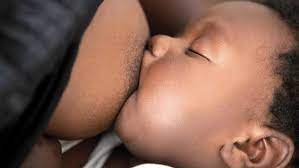From Maduabuchi Nmeribeh, Kano
The UNICEF Field Office, Kano, has urged the state government to enact and implement a law extending maternity leave up to six months for nursing mothers who are civil servants, as a matter of urgency.
UNICEF insisted that the law becomes necessary to enable nursing mothers in the state adhere to the globally accepted six months exclusive breastfeeding policy.
UNICEF Nutrition Specialist for Kano Field Office, Oluniyi Oyedokun, made this appeal on Monday, at Tahir Guest Palace, Kano, during a Media Dialogue on “Stronger with Breastfeeding Only,” initiative as part of activities commemorating World Breastfeeding Week 2022, organized by UNICEF in partnership with Abubakar Rimi Television (ARTV) and Alive and Thrive, a non governmental organization (NGO).
According to him, the Federal Government has made it as a matter of policy that nursing civil servants must be granted six months maternity leave to ensure proper exclusive breastfeeding of the child, while other states like Kaduna, has also followed suit.
The AUTHORITY findings indicated that in Kano currently, nursing civil servant mothers are only granted three moths maternity leave.
But UNICEF has strongly advocated that three months maternity leave is not enough to give nursing mothers the ample opportunity to ensure six months exclusive breastfeeding, for the good health and well-being of the infant baby.
The UNICEF, therefore, called on Kano state Executive Council and the state House of Assembly, to as a matter of urgency ensure the extension of maternity leave for nursing mothers to six months.
Oluniyi further called on policy makers to increase funding to implement, monitor and enforce policies and plans that support exclusive breastfeeding.
He also advocated for the adoption, monitoring and enforcement of legislation thatvregulates the marketing and promotion of breastmilk substitutes, including bottled water.
UNICEF called on journalists to engage with the business sector and social endurance schemes to enact family-friendly policies that protect working women’s right to breastfeed their new born babies.
Emphasizing in the importance of exclusive breastfeeding, the UNICEF Nutrition Specialist noted that, “exclusive breastfeeding also acts as babies’ first vaccine, protecting them against many common child illness.”
He said nursing mothers should engage in early initiation of exclusive breastfeeding within one hour of birth, exclusive breastfeeding from birth to six months without giving water or any other liquid or foods, continue breastfeeding with complementary feeding from six to 23 months and beyond.
Dr. Steve Daniels of Ahmadu Bello University (ABU), Zaria, while presenting a paper entitled: “Why is Breastfeeding Important and what is ‘Stronger with Breastmilk Only’Initiative and the Zero Water Campaign,” said exclusive breastfeeding guarantees a healthier living for the child growing through adulthood.
He said exclusive breastfeeding is good for growth, development and health of children, pointing out that the first yellow milk protects the baby against infection.
He further stated that, “when a child is exclusively breastfed, the child hardly fall sick. Exclusive breastfeed protects the children against disease in adulthood. Exclusive breastfeeding is the single largest intervention against child death.
“Giving water is the number one obstacle to exclusive breastfeeding. Do not give water to the child until after six months of birth. Adhere strictly to zero water.”
He also hinted that the nursing mother should not be allowed to take her birth or wash before breastfeeding the child immediately after birth.
In his remarks, Dr. Murtala M. Inuwa, Deputy Director Family Health/Nutrition Coordinator, State Primary Health Care Management Board, regretted that owing to lack of adherence to exclusive breastfeeding, out of three million under five years old children in Kano, 1.5 million are stunted, 108, 544 children are wasted, while 2.03 million are anaemic.
He added that verifiable data indicated that only 18.6 percent of children born in Kano are exclusively breastfed.
In her welcome address, the Director General of ARTV, Hajiya Sa’a Ibrahim, tasked journalists to engage in aggressive campaign promoting exclusive breastfeeding through dissemination of credible information that will change the mindset of the people for the better.
She added that as media professionals, there was need to make sure that the community and the general public are well-informed on the importance of exclusive breastfeeding, “it is on this light that we are gathered here today to play our own role towards the well-being of our children as experts in information management.”
The Communication Specialist for UNICEF Field Office, Kano, Mr. Samuel Kaalu, charged journalists to engage in advocacy that promote social behavourial change campaign towards strict adherence to exclusive breastfeeding, using their powerful position as information managers and opinion moulders.
The theme for this year’s World Breastfeeding Week is tagged: “Step up for Breastfeeding–educate and support.”
The AUTHORITY reports that Nigeria’s Infant and Young Child Feeding Policy recommends Exclusive Breastfeeding as the optimal source of nutrition for the first six months of life and appropriate complementary feeding from six to 24 months.
Initiation of breastfeeding within the first hour of birth, followed by exclusive breastfeeding for six months and continued breastfeeding for up to two years or beyond offer a powerful line of defense against all forms of child malnutrition, including wasting and obesity.
Exclusive breastfeeding also acts as babies’ first vaccine, protecting them against many common childhood illness.



